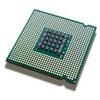We introduce a new class of hardware trojans called interrupt-resilient trojans (IRTs). Our work is motivated by the observation that hardware trojan attacks on CPUs, even under favorable attack scenarios (e.g., an attacker with local system access), are affected by unpredictability due to non-deterministic context switching events. As we confirm experimentally, these events can lead to race conditions between trigger signals and the CPU events targeted by the trojan payloads (e.g., a CPU memory access), thus affecting the reliability of the attacks. Our work shows that interrupt-resilient trojans can successfully address the problem of non-deterministic triggering in CPUs, thereby providing high reliability guarantees in the implementation of sophisticated hardware trojan attacks. Specifically, we successfully utilize IRTs in different attack scenarios against a Linux-capable CPU design and showcase its resilience against context-switching events. More importantly, we show that our design allows for seamless integration during fabrication stage attacks.We evaluate different strategies for the implementation of our attacks on a tape-out ready high-speed RISC-V microarchitecture in a 28nm commercial technology process and successfully implement them with an average overhead delay of only 20 picoseconds, while leaving the sign-off characteristics of the layout intact. In doing so, we challenge the common wisdom regarding the low flexibility of late supply chain stages (e.g., fabrication) for the insertion of powerful trojans. To promote further research on microprocessor trojans, we open-source our designs and provide the accompanying supporting software logic.
翻译:暂无翻译




